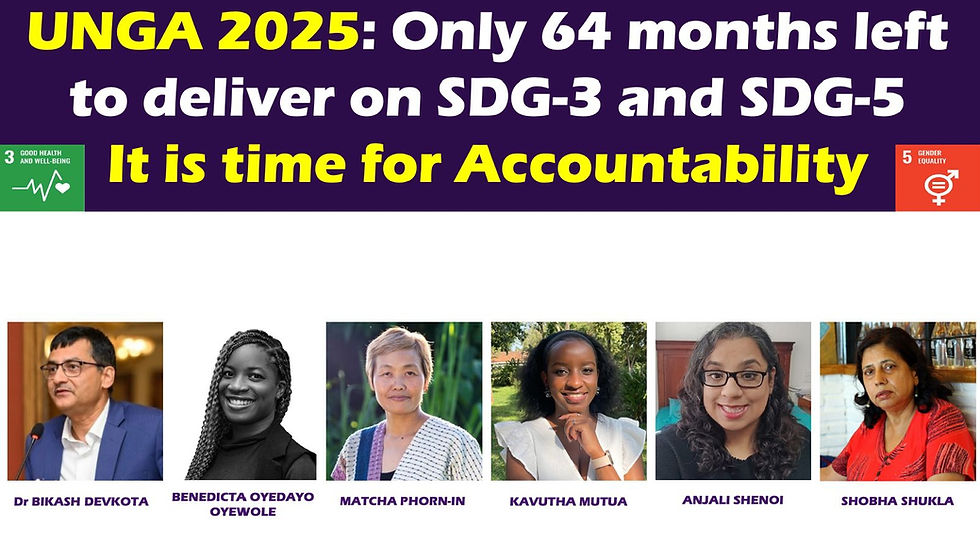Older Adults Living with HIV Face Unprecedented Health Challenges.
- 365healthdiaries
- Nov 12, 2024
- 2 min read
By Hamu Madzedze-Online Health Editor,Zimbabwe
The growing population of older adults living with HIV faces unprecedented health challenges promoting calls for targeted support and care.
Tariro Kutadza ,Zimbabwe's HIV and TB advocate ,revealed this during a presentation at the National AIDS Council Media workshop held recently.
Kutadza said aging in HIV -infected individuals leads to increased vulnerability to chronic diseases ,including cardiovascular issues,renal dysfunction and non-AIDS defining cancers occurring earlier than in the general population hence the need for age -sensitive healthcare services.
"There is a need for equitable access to healthcare services ,focused research on aging with HIV and involvement of older adults in decision making process"said Kutadza.
(Above Tariro Kutadza emphasises a key point during her compelling presentation)
She also highlighted that people aging with HIV have lived with the virus for years ,facing increased risks of age-related health conditions and needing specialised healthcare strategies for effective management of both HIV and the challenges associated with aging.
"People living long-term with HIV manage their infection effectively through antiretroviral therapy maintaining quality of life but facing aging-health challenges"added Kutadza.
She added that it is important to advocate for policies that support older adults with HIV,addressing high priority topics through education,mental well-being,aging-related comorbidities and cognitive health problems.
"We all deserve age-friendly and age-affirming information,care,services, and support that considers not only the impact of our HIV status"pointed out Kutadza
Participants who attended the 2022 HIV Glasgow Manifesto stated that it is key for the development of new models of care for older people living with HIV in order to address the health and social complexity which include sexual and mental health needs,raise awareness among service providers of their distinct clinical and social needs, responses from community which are age-affirming ,address ageism and increase inter-generational understanding,change policy to respond to the unmet housing,food,and resource needs of older people living with HIV who experience disability,more research and education on older people living with HIV ,with community involvement and include older people living with HIV response ,including priority -and target -setting,funding allocation and messaging about the impact of HIV.
Overall it is estimated that 50%of HIV-infected people are over 50 years of age and by 2030 models estimate that at least 60% of people living with HIV will be aged 60 years or more.





Comments